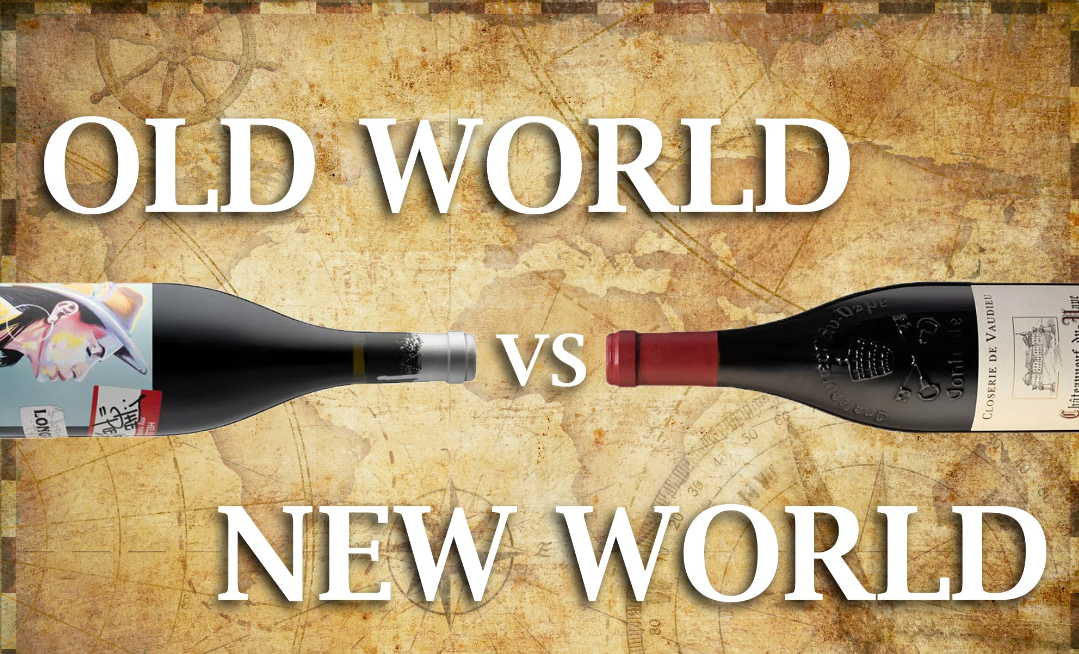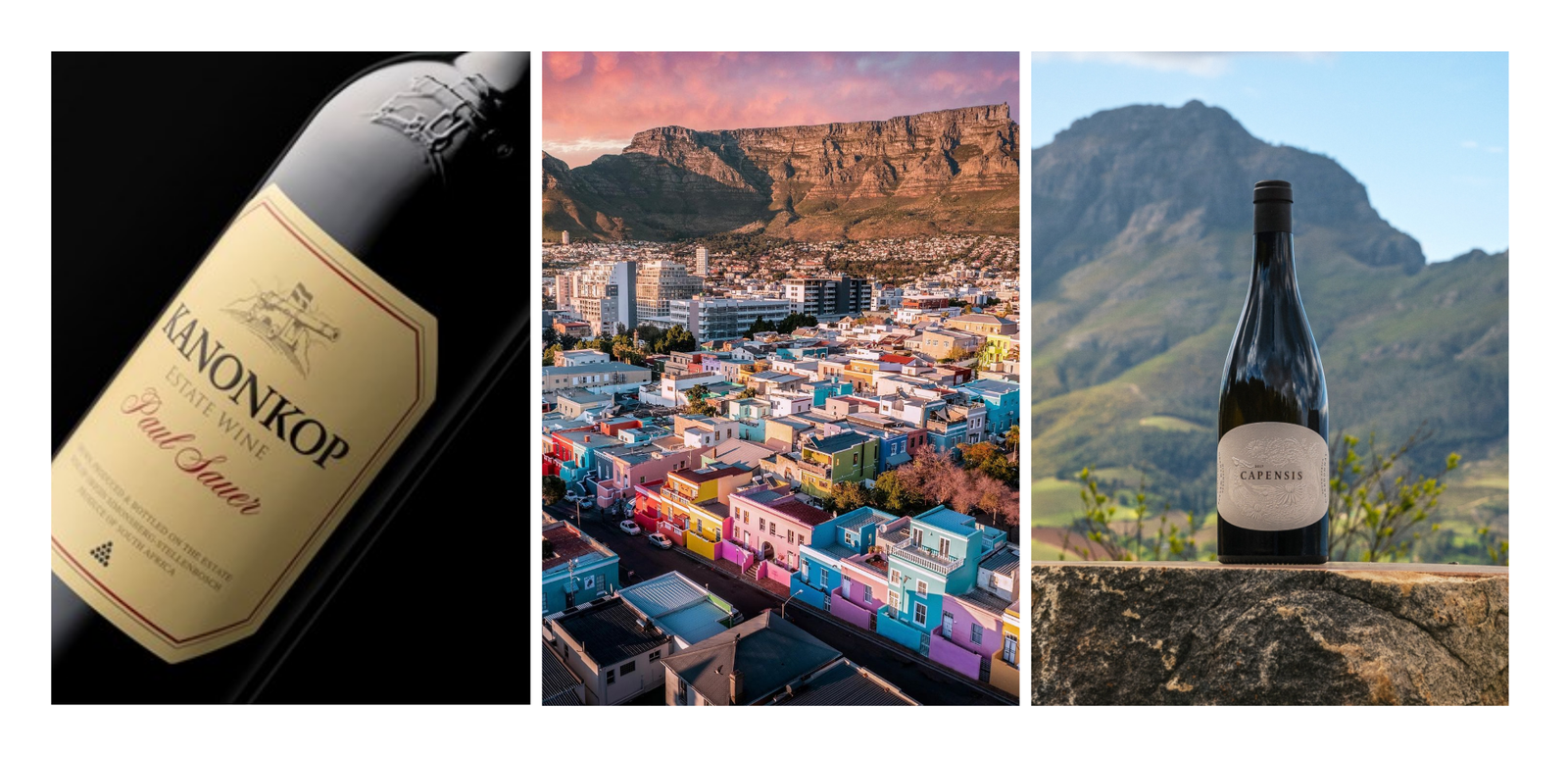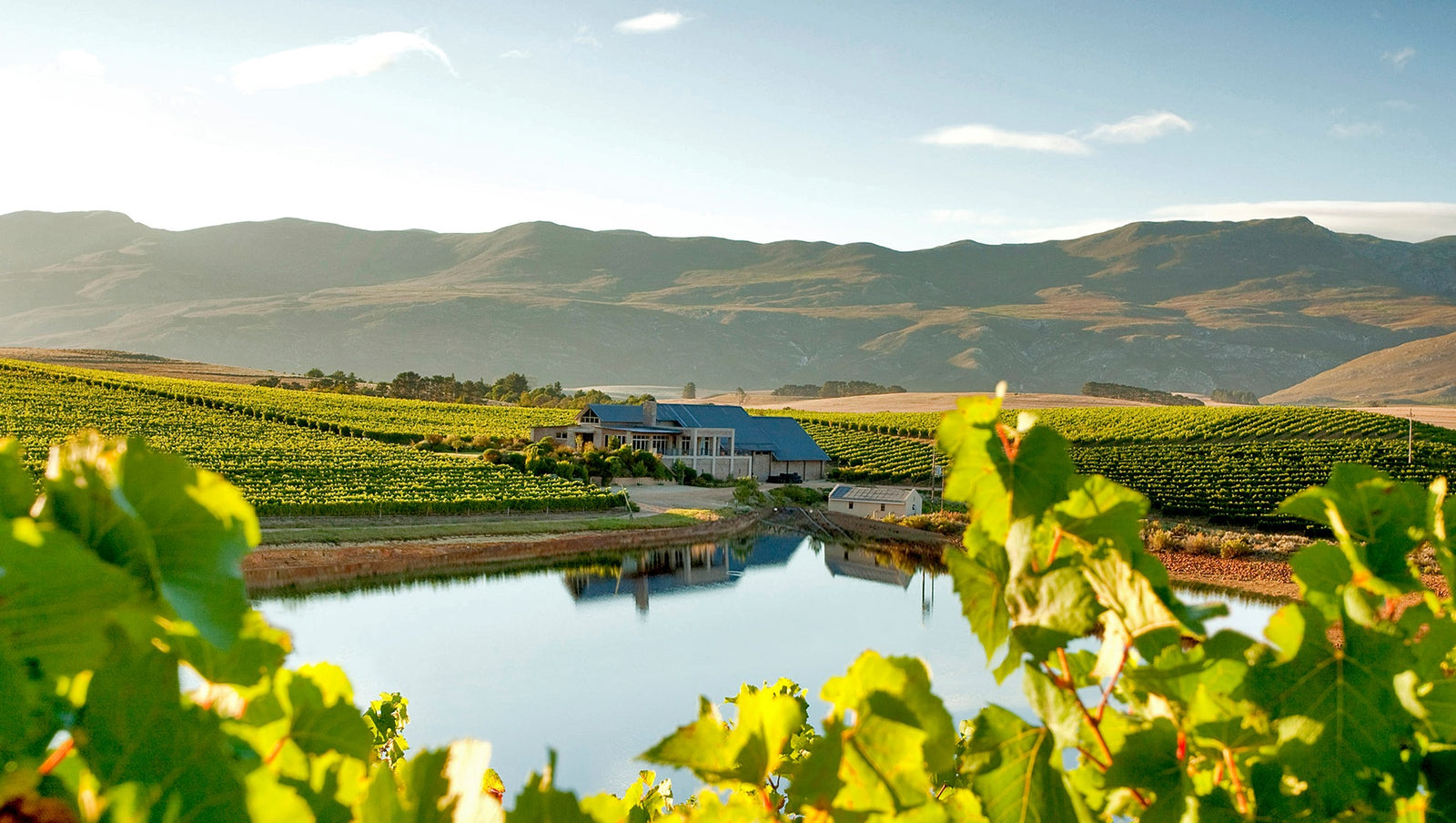South Africa has a rich history of winemaking dating back to the 17th century. Today, South African wine is celebrated for its diverse range of styles and exceptional quality. This is largely due to the collision of old and new world wine styles in South Africa, resulting in unique and innovative winemaking techniques that have evolved over the years. The South African wine industry is thriving, producing a wide range of distinctive wines that showcase the country’s terroir and cultural heritage.

South African Vineyards
Old world winemaking in South Africa is rooted in tradition, with a focus on terroir and the use of classic European grape varieties. These traditional winemaking techniques were first introduced to South Africa in the 17th century, when the Dutch established the first vineyards in the Cape. Over time, winemaking in South Africa was influenced by the French, who introduced new grape varieties and winemaking techniques.

Photographed in 1931, one of the vineyards which in the late 1700s produced wines ‘nearest to the wines of Constantia’
In contrast to the old world, new world winemaking is characterized by innovation and experimentation. In the 20th century, South African winemakers began to embrace new winemaking technologies, such as temperature-controlled fermentation, which allows for greater control over the winemaking process. They also began to experiment with grape varieties such as Sauvignon Blanc and Syrah with a focus on producing fruit-forward wines that showcase the unique characteristics of the region.

Kanonkop Wine Cellar
One of the most distinctive aspects of South African winemaking is the use of the Pinotage grape, which was created in the country in the 1920s by crossing Pinot Noir and Cinsault. Pinotage has a unique character that reflects the warm, sunny climate of South Africa, and it is used to produce a wide range of wines, from light and fruity to rich and complex.
The collision of old and new world winemaking techniques in South Africa has resulted in a unique blend of styles that showcases the country’s terroir and cultural heritage. This collision is exemplified by the “Cape Blend,” a uniquely South African wine style that combines the classic Bordeaux grape varieties with Pinotage. The 2017 Rubicon is a classic vintage of this iconic Cape wine and we have this vintage available in Australia.
Meerlust Rubicon
In addition to Pinotage, South African winemakers are also experimenting with other grape varieties, such as Chenin Blanc, which has become one of the country’s most important varietals. Chenin Blanc is versatile and can be used to produce a range of styles, from dry and crisp to sweet and dessert-like.
South African winemakers have also been experimenting with natural winemaking, which involves minimal intervention in the winemaking process. Natural wines are made without the use of added chemicals or artificial additives, and they often have a distinct flavour profile that reflects the unique terroir of the region.

Testalonga wine range
The South African wine industry has undergone many changes over the years, from the establishment of the Wine of Origin scheme in the 1970s to the more recent focus on sustainability and environmental stewardship. The Wine of Origin scheme was established to promote quality winemaking in South Africa and to establish strict regulations for winemaking and labelling. Today, South African wine is exported to countries all over the world, and it is celebrated for its exceptional quality and diversity of styles.
In recent years, South African winemakers have been working to establish a unique identity for their wines, drawing on the country’s rich history and diverse cultural heritage. This has led to a renewed focus on terroir, with winemakers seeking to produce wines that reflect the unique characteristics of their region. South African winemakers have also been experimenting with natural winemaking, which involves minimal intervention in the winemaking process, and they are using the latest winemaking technology to produce high-quality wines that reflect the country’s unique terroir.
The South African wine industry has also made significant strides in sustainability and environmental stewardship. Many wineries have implemented sustainable practices, such as organic and biodynamic farming, water conservation, and energy efficiency. Some wineries have also implemented programs to support local communities and to promote social responsibility.
One of the most exciting developments in South African winemaking is the emergence of a new generation of winemakers, who are bringing fresh ideas and new approaches to the industry. These young winemakers are experimenting with different grape varieties, winemaking techniques, and aging processes, and they are helping to push the boundaries of what is possible in South African winemaking.

Duncan Savage is SA’s winemaker of the year as said by MW Tim Atkin
The diversity of styles in South African wine reflects the country’s unique blend of old and new world winemaking techniques. This collision of old and new world winemaking styles in South Africa has resulted in a vibrant and dynamic wine industry that is constantly evolving. With its diverse range of styles and exceptional quality, South African wine is sure to continue to impress wine lovers around the world for years to come.

South African Wine range
Credit:
- Sunday Time magazine
- Testalonga Wine
- Odd Bins
- News 24
- Winemag.com
- MW Greg Sherwood




